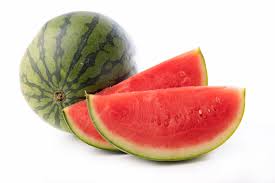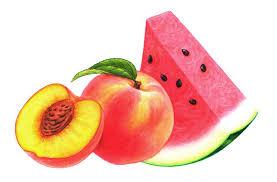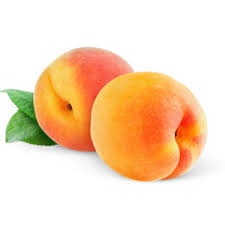“Peaches:” probably one of the most important words in the English language. And the word has nothing to do with politics. (Isn’t that refreshing!) Taking this Sunday off from politics is certainly a good thing on many levels. But for me it allows me to think through other very important issues in my life without all of the frustrations and mixed feelings I get when discussing the state of U.S. politics. And, believe it or not, there are many things that are not political that are important or even more important than politics: like “Peaches.” Curious yet? Read on…
Mom and Dad were really good at impressing the importance of life’s fundamental principles on my brother and me, even when we were very young. We were on the lower end of the middle class “scale,” and many of life’s economic privileges passed by the Newman home without stopping in. But I do not remember there ever being financial tension or worry at home. Dad worked hard. Mom took care of us and the house like moms do, and never missed a school function or extracurricular activity in our lives.
Dad was a preacher. He pioneered two small churches while working his real job every day. The two in combination made family time for us pretty scarce, but both Mom and Dad worked hard to keep it all together. It was in that environment that those fundamental principles played out in my life starting when I was really young.
I will never forget my father teaching me one of the basics of getting along with other people — my friends at school. By the second grade I had discovered that we were lower middle class, that there were boys and girls in my grade that were from “upper” middle class and above, and that girls seemed to be partial to boys from those classes and also partial to good looking boys, which I was not. That led me to work hard to find ways to get a leg up with the girls. And trying to impress them seemed to keep me in trouble. There are only so many things a second grader can do to impress girls in the right way. Impressing them was the only thing that mattered. And sometimes my choices of things to use to impress them crossed the line.
Dad when brought into those circumstances used them (after using his belt on my bottom) and made certain I understood the cost for my choices were much more than the spanking I received. In other words he taught me how to look at things from a bigger picture perspective: life was more than just today. And my choices then and now (according to him) would not impact me only, but would impact the lives of others — even people I did not know at the time.
It wasn’t until later in life I grasped exactly what he was teaching me. Of course as I got older and my interests changed, my personality changed, my circle of friends changed, I acted differently about most things. Very childishly I thought for years that what he taught me then applied to only that part of my life. Boy was I wrong!
I will not bore you with examples of the horrors I went through to learn all the applicable lessons from this teaching. I imagine you have been through a few of your own. But let me say this: several years after my parents’ divorce (that was REALLY ugly), I began to understand the importance of relationships with others and that good relationships do not just happen. They require work….and HARD work. And everything that is said or done in a relationship matters, makes a difference, and has consequences. But most of all, relationships come with responsibilities.
Enter a really important Scripture here: The Flood had destroyed the Earth except for Noah, his family, and the animals that rode the Ark. After that world changing event, God had a conversation with Noah. In Genesis 8:21-22, God promised Noah that: “While the Earth remains, seedtime and harvest, cold and heat, summer and winter, and day and night shall not cease.” God’s promise: just 4 simple things.
Notice as I did after the divorce that of these 4 elements in this promise, 3 are about sunlight, night and day, and cold and hot — things that we have no control over. The other is about things that we actually DO: plant seed and harvest crops. Hmmm……
So today’s lesson for all of us goes like this: we’ve pretty much heard this principle preached our entire lives, and not in church: “What goes around comes around,” “If you want something you have to work for it,” “If you can’t stand the heat get out of the kitchen,” etc. But they all have two things in common: they are NOT about things God (or Mother Nature) does; they ARE about things we do.
Farmers know the principle well: they invest their lives in growing crops. And in doing so they quickly learn that if they want something to grow, somebody’s got to plant something so there’s something TO grow. (There’s the correlation to the example given above, “If you want something you have to work for it”) Farmers want crops. Their work for crops? They must plant seeds.
Too many in the U.S. want something but seem unable or unwilling to plant the seed necessary for it to grow into existence in their lives. Our world is filled with ever growing apathy, complacency, laziness, self entitlement, and anger. None of these traits are conducive to growing healthy crops. Because many people — even though they desperately want good relationships, good business and personal and successful economics in their lives, happy and obedient children — are not willing to pay the price necessary to receive those things. So they don’t.
Still others may understand the process and may even believe in it. But they allow the process to control them rather than the other way around. They want some of the same things. And they may be willing to work. But they are unwilling to do the work necessary to achieve the specific results they want.
So there’s the first part of the lesson: if you want something to grow, you must first plant something from which it can/will grow. The second part of the lesson is really the tough part: if you expect peaches to grow, you MUST plant peach seeds! You may be laughing now at my saying that. But think about it: how many times have you faced a decision in your life, knowing there are consequences that come with that decision. Then, instead of planting a peach seed, you plant some other kind of seed. You justify in your mind, “I planted a seed. So why can’t I get that peach tree to grow?” Simple: you planted a watermelon seed! 
I have a good friend that is a good man and very successful in business. He has a great family: wife and two children. As often happens, he decided to look for romance on the side and allowed himself to become involved with a woman from a close by city. Their affair lasted almost a decade. Several times I felt led to and spoke to him about it, reminding him of the “reap and sow” principle. I once asked him, “Don’t you know that everything we do in our lives causes other things to happen? And having this affair will cost you in the end. Are you willing to pay the price?” His reply was sad but typical of many, “Oh, I know there’s a price I’ll pay. I’ll have a bad year in business, mess up and get popped on my taxes, or something like that.” As we often do, he rationalized his choices ignoring God’s promise. His wife left him. His children turned their backs on him. He lost the dearest things in his life as the cost for his planted seed.
He knew there’d be a price to pay. But he discounted the principle God started that day with Noah. He planted watermelon seeds thinking he could get peaches. Instead — just as God promised Noah — watermelons grew in his life. Those watermelon seeds were EXACTLY what he planted! He sowed infidelity and cheating on his wife and children. His wife left him for another man. And his children rejected him for devastating their mother. He planted watermelon seeds and never saw the peaches he wanted.
 Today’s lesson: “Anything worth having is worth working for.” When we’re farming in our lives (working), let’s stop thinking we’re going to get peaches if we plant watermelon seeds. And let’s know for certain that whenever we plant watermelon seeds, we’re going to get watermelons everytime. I prefer peaches!
Today’s lesson: “Anything worth having is worth working for.” When we’re farming in our lives (working), let’s stop thinking we’re going to get peaches if we plant watermelon seeds. And let’s know for certain that whenever we plant watermelon seeds, we’re going to get watermelons everytime. I prefer peaches!


Such a strong word Dan- Make sure you plant – make it the right seed- Trust God for the growth knowing you have to wait thru the seasons to get the harvest you desire.